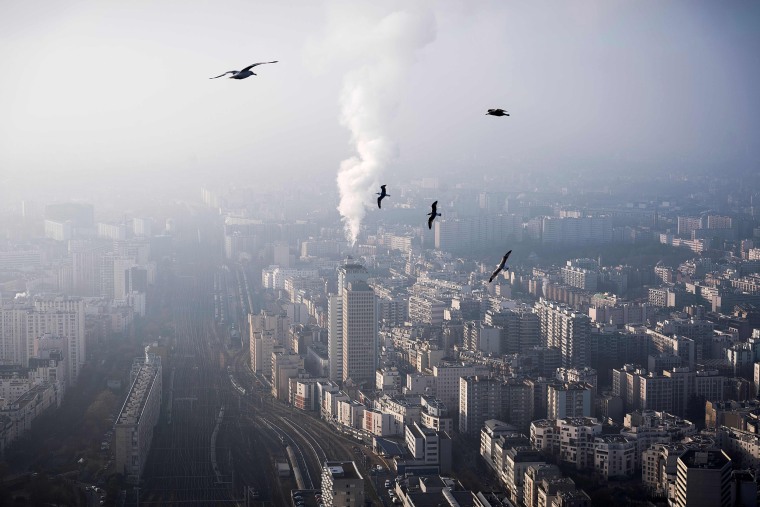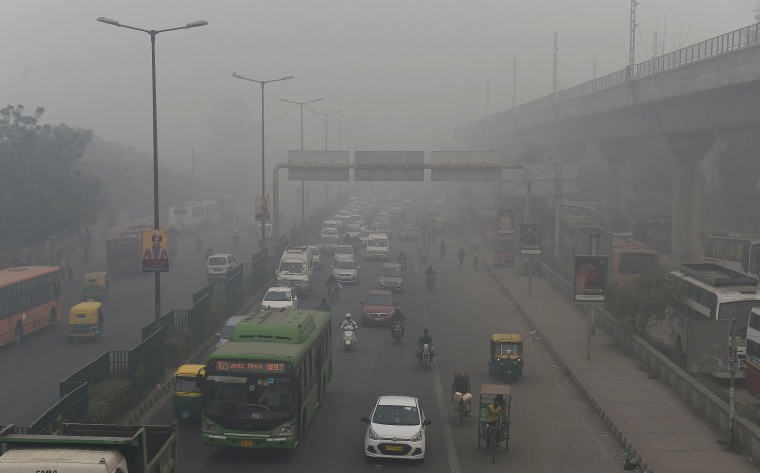The United Nations is sounding the alarm: The last time carbon dioxide concentrations in the atmosphere were this high was three to five million years ago.
In a report this week, the World Meteorological Organization (WMO) warned that temperatures could continue to spike, hitting perilous levels by 2100 — unless world leaders take drastic action.
"Without rapid cuts in CO2 and other greenhouse gas emissions, we will be heading for dangerous temperature increases by the end of this century," Petteri Taalas, the WMO's secretary-general, said in a statement.

"We are actually moving in the wrong direction," Taalas said.
That alarming prediction will likely loom over a major climate summit, known as COP 23, that starts next week in Bonn, Germany, and will bring together leaders from around the world.
Related: Are NYC’s Preparations Amid Climate Change Enough?
Among the topics on the agenda: the Paris climate agreement, the landmark pact in which nearly 200 nations agreed to set plans for cutting greenhouse gas emissions. The accord has faced intense scrutiny in recent months after President Donald Trump announced plans to pull the United States out of it.
The State Department has said the U.S. will continue to play a role in international meetings on climate deals.
Trump is "open to re-engaging in the Paris agreement if the United States can identify terms that are more favorable to it, its business, its workers, its people and its taxpayers," the State Department said.

Amid uncertainty about the long-term role the U.S. might play, a new report by U.S. government scientists is perfectly clear: The evidence of global warming is stronger than ever — and almost all of it has been caused by humans.
"For the warming over the last century, there is no convincing alternative explanation supported by the extent of the observational evidence," said the report, released Friday. Its authors include scientists at government agencies like the National Oceanic and Atmospheric Administration and the Environmental Protection Agency.
Leading experts in the field say concerned nations have little time to waste.
"Whether we’re talking about unprecedented heat waves, increasingly destructive hurricanes, epic drought and inundation of our coastal cities, the impacts of climate change are no longer subtle. They are upon us," Michael E. Mann, a climate scientist at Penn State, said in an email. "That’s the consensus of our best scientists, as laid bare by this latest report."
Related: Can a Carbon 'Vacuum Cleaner' Save the Planet?
The new WMO report, released Monday, said fierce El Niño and human activity helped lead to a surge of CO2 concentrations to 403.3 parts per million in 2016, an increase from 400 in 2015. CO2 traps heat in the earth's atmosphere, leading to higher temperatures.
"The numbers don't lie," Erik Solheim, the executive director of the U.N. Environment Program, said in a statement. "We are still emitting far too much and this needs to be reversed."
"What we need now," he added, "is global political will and a new sense of urgency."
